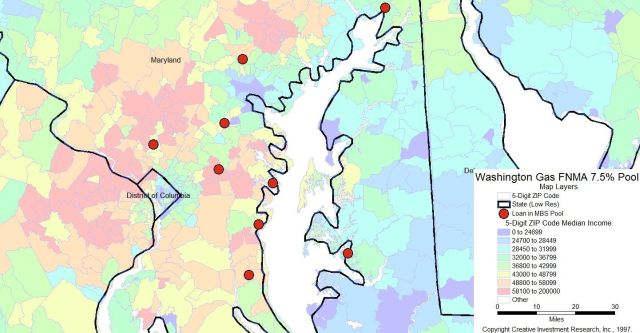Environmental, Social and Governance (ESG)/Socially Responsible (SRI)/"Impact investing" as defined on this website, describes a style of investing combining a desire to maximize financial return with an attempt to maximize social return.

We believe this style of investing began with the Religious Society of Friends, better known as the Quakers. In 1758, the Quaker Philadelphia Yearly Meeting prohibited members from participating in the business of buying or selling humans or participating in the institution of slavery, a prominent business practice of the day. Thus, impact investing and black people have been tightly linked from the beginning.
We have been at the forefront of Social Investing, Impact Investing, ESG and Black People since 1990. (See our webinar event, African American Knowledge CIrcle: Discussion on ESG Investing at https://fpalearning.onefpa.org/products/african-american-knowledge-circle-discussion-on-esg-investing). We started out in 1989, looking at banks owned by women and minorities. We wanted to be the Moody's, the Standard & Poor's for these banks, because there was a class of institutional investors who wanted to deal with women and minorities in banks, but they couldn't find any credible, real-time information, so, we created it. We created something called the Fully Adjusted Return Methodology, which is a way of calculating and capturing both financial and social return data. We think diversity and inclusion are leading indicators of management competence and therefore should lead to a portfolio with higher alpha. We did the first statistical and investment analysis of diversity investing in 2006 and found that our thesis about the higher alpha for a portfolio comprised of companies that are top performers within the sector diversity/inclusion was correct.
Impact investing has grown in importance. As others have noted, $12 trillion in assets are managed using some form of social return or social impact considerations. For Black people, too often this focus ignores needs in their specific community. We have seen impact investing innovations designed to serve the community modified and focused away from Black people" the California State Teachers Retirement System (CalSTRS) "seeded US$ 250 million into an exchange-traded fund (ETF) called the Gender Diversity Index ETF (ticker: SHE). This ETF, while not exactly ignoring opportunities in communities of color, is mainly focused on white women. Of course, we do not claim CalSTRS as a client, but we can and do note that this style of investing is based, in part, on the Diversity Investing methodology we created in 2006 (see: https://www.creativeinvest.com/FirstInvestingPortfolioDevotedtoDiversity.pdf and diversityfund.net).
This is typical. One current impact investing innovation, the "Opportunity Zone" Program, allows "individuals and businesses to receive capital gains tax breaks if they invest in economically distressed communities that have been designated as opportunity zones," mainly communities of color.
Opportunity Zone investments are made via Qualified Opportunity Funds, directed to promote economic development in 8,700 disadvantaged rural and urban communities selected by state governors and certified by the U.S. Treasury Department. See our class Opportunity Zones Explained. What are Opportunity Zones and How do They Work? Highest Rated: 4.6 out of 5. https://www.udemy.com/course/opportunityzones/
We warned in a public comment letter to the IRS that "many communities of color are at risk for rapid dislocation," and that the program could result in "gentrification on steroids." See: Testimony on Opportunity Zones. https://youtu.be/yqhOwlpNgjw
According to Census Bureau data, in the aftermath of the financial crisis, "Black median net worth decreased 61 percent from 2005 to 2009. Whites, in contrast, lost 21 percent of their wealth.". The real power of impact investing lies in its ability to reverse this loss.
Black Impact Investing Strategies
In general, firms focusing on impact investing in the Black community have focused on venture capital or real estate development. Some have targeted small business. These efforts have yet to be effective for a number of reasons:
Black Impact Investing Tactics

Black venture capital funds. We have seen an increase over the past few years, including the following:
The number of efforts, as noted by the increase in Black venture capital activity, are increasing. New efforts, like Reinventure Capital, started by Edward Dugger, are coming on stream. Other funds are being started by Lo Toney of Plexo Capital and Richard Kerby from Equal Ventures.
Other efforts include the "Echoing Green Impact Investing program of selecting, seeding, and investing in social entrepreneurs."
While we appreciate the effort, we think these funds have yet to be broadly effective. We are, however, hopeful.

